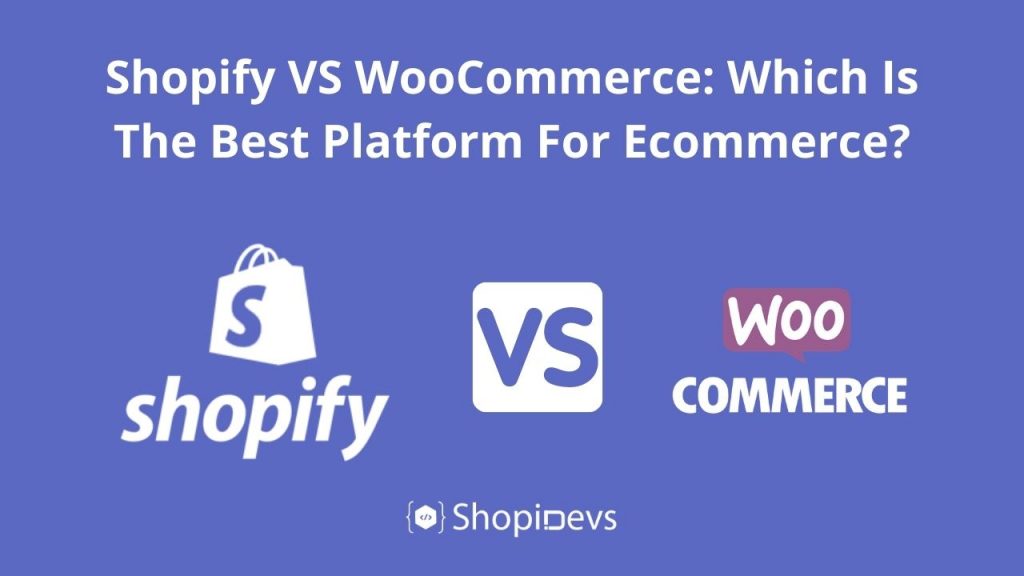Starting your journey to become a Shopify expert? Awesome, you’ve come to the right place to learn about how to become a Shopify expert and grow Your business!
A Shopify expert is a highly skilled professional who specializes in designing, developing, and optimizing online stores using the Shopify platform.
Becoming a Shopify expert is valuable due to the growing demand for e-commerce, lucrative income potential, and diverse skill set opportunities.
Reading this guide you’ll clearly understand the key steps and important topics you need to learn about how to become a shopify expert.
Alright, let’s quickly see what we’re going to discuss in this guide to become a Shopify expert!
- Understanding the Basics of Shopify
- Setting Up Your Shopify Store
- Mastering Shopify Tools and Features
- Optimizing Sales and Marketing Strategies
- Grow Your Business Network with Shopify
Table of Contents about How to Become a Shopify Expert
How to Become a Shopify Expert
Shopify is a leading e-commerce platform that allows online retailers to easily set up and manage their online stores. It provides a user-friendly interface, a wide range of customizable templates, and powerful features to help businesses of all sizes.
Setting Up a Shopify Store
To get started with Shopify, you can sign up for an account and choose a unique domain name for your online store that best fits your business. Once you have set up your account, you can select a theme, customize it, and add your products.
1. Choosing a Plan
The first step is to select a Shopify plan that suits your needs. Shopify offers various plans including various features and pricings, catering to everyone from small to established businesses. Consider your budget and requirements before making a choice.
2. Selecting a Domain Name
Your domain name is your online identity, so choose it wisely. It should be relevant to your brand, easy to remember, and, if possible, include your primary keywords. Shopify allows you to buy a domain through them or connect an existing one.
3. Customizing Your Store
Now comes the creative part. Choose a theme for your store that reflects your brand’s personality. Shopify offers a wide range of free and premium themes, and you can customize them to fit your vision. Pay attention to layout, colors, and fonts to create a visually appealing storefront.
4. Adding Products
Populate your store with products that you intend to sell. Create engaging product listings with high-quality images, detailed descriptions, and accurate pricing. Organize your products into categories or collections to make navigation easy for your customers.
5. Setting Up Payment and Shipping
Configure your payment gateway to accept payments from customers. Shopify integrates with various payment providers like PayPal, Stripe, and more. Additionally, set up your shipping options, including shipping rates and zones to ensure a smooth checkout process.
6. Configuring Taxes
Taxes can be a bit tricky, but Shopify simplifies the process. Depending on your location and the nature of your products, configure tax settings accurately to comply with legal requirements.
7. Adding Essential Pages
Create essential pages like an ‘About Us’ page, a ‘Contact Us’ page, and a ‘Privacy Policy’ page. These pages build trust and provide necessary information to your customers.
8. Testing Your Store
Before launching your store, thoroughly test it. Go through the entire buying process as a customer to ensure that everything functions correctly, from product selection to checkout.
9. Setting Up Analytics
Utilize Shopify’s built-in analytics and reporting tools to monitor your store’s performance. Track visitor behavior, sales trends, and other crucial data to make informed decisions.
10. Launching Your Store
Once you’ve fine-tuned everything and are confident in your store’s functionality, it’s time to go live. Celebrate this milestone and start marketing your store to attract customers.
11. Optimizing for Mobile
Remember that many customers will access your store from mobile devices. Ensure that your store is mobile-friendly, with responsive design and fast loading times.
Challenges or Mistakes while Setting Up
Shopify stores can present challenges, such as neglecting user experience, failing to optimize for mobile devices, and overlooking SEO strategies.
Staying updated in the ever-evolving e-commerce world is crucial. Shopify experts can overcome these obstacles with dedication and ongoing learning.
Mastering Shopify Tools and Features
To become a Shopify expert, mastering Shopify’s tools and features is crucial for achieving e-commerce success. By understanding and leveraging the platform’s capabilities, business owners can maximize sales, optimize user experience, streamline operations, and build trust and credibility with their customers.
1. Familiarize Yourself with Shopify’s Dashboard
Start by exploring the Shopify dashboard. This is your control room. Understand where everything is and what each tool does. From managing orders to tracking customer data, the dashboard is your go-to for daily operations.
2. Dive into Theme Customization
Shopify’s theme store offers a myriad of options. However, becoming an expert means going beyond just picking a theme.
Learn to customize themes using Shopify’s Liquid programming language. This skill allows you to tailor the look and feel of your store to match your unique brand identity perfectly. Also, you have to remember about Mobile-responsive design.
3. Use Shopify’s SEO Tools
Shopify comes with built-in SEO features, but mastering them requires practice. Understand how to optimize your product pages with keywords, craft SEO-friendly URLs, and leverage Shopify’s blogging platform to drive organic traffic.
4. Master Shopify’s Analytics
Data is gold, and Shopify’s analytics tools are a goldmine. Learn to interpret data from sales trends, customer behavior, and website traffic. Using these insights can help you make informed decisions to grow your business.
5. Explore the App Store
Shopify’s App Store is filled with apps that can add functionality to your store. From email marketing tools to inventory management systems, becoming familiar with popular apps and understanding how to integrate them is crucial.
6. Perfect Your Product Management Skills
Learn how to effectively use Shopify’s inventory management system. Understand how to add products, set up collections, manage stock levels, and organize your products in a way that enhances user experience.
7. Experiment with Marketing and Sales Features
Shopify offers various tools for marketing and sales like discount code creation, gift cards, and email marketing campaigns. Experiment with these features to find out what works best for your audience and niche.
8. Understand Shopify Payments and Shipping
Navigating through Shopify Payments and setting up shipping rates and zones can be complex. Master these to provide a seamless checkout experience for your customers and streamline your order fulfillment process.
9. Learn About International Commerce
If you plan to sell globally, understanding Shopify’s multi-currency and multi-language capabilities is vital. Catering to a global audience requires an understanding of international tax laws and shipping logistics.
10. Keep Up with Shopify Updates and Trends
Shopify is constantly evolving. Stay updated with the latest features and updates. Join forums, attend webinars, and follow Shopify blogs to stay informed.
11. Practice Custom Integrations and Advanced Features
As you get more comfortable, start experimenting with advanced features like API integrations or building custom add-ons. This might require some programming knowledge, but it’s a valuable skill that can set you apart as a Shopify expert.
Optimizing Sales and Marketing Strategies
As you want to know how to become a Shopify expert, mastering in sales and marketing is crucial for driving traffic, converting visitors into customers, and ultimately, growing your online store’s success. Let’s delve into the strategies and tactics that will help you excel in this essential area.
1. Know Your Target Audience Inside Out
To optimize your sales and marketing strategies, you must intimately understand your target audience. Create detailed buyer personas that encompass demographics, interests, pain points, and buying behaviors. Tailor your approach to resonate with these personas.
2. Leverage Content Marketing
Content is king in the digital world. Create high-quality blog posts, product descriptions, and engaging content that educates, entertains, and adds value to your customers’ lives. Content marketing not only attracts traffic but also builds trust and authority.
3. Invest in Email Marketing
Email marketing remains one of the most effective ways to nurture leads and drive sales. Use Shopify’s built-in email marketing tools or integrate third-party platforms to send personalized emails, including abandoned cart reminders, product recommendations, and promotional offers.
4. Harness the Power of Social Media
Social media platforms are your allies in reaching a wider audience. Develop a robust social media strategy, post engaging content, and use targeted advertising to connect with potential customers where they spend their time.
5. Implement SEO Strategies
Search engine optimization (SEO) is crucial for organic traffic. Optimize your product listings, category pages, and blog content for relevant keywords. Ensure your site’s structure and speed are optimized for search engines.
6. Paid Advertising Campaigns
Shopify integrates seamlessly with popular advertising platforms like Facebook Ads and Google Ads. Invest in paid advertising campaigns to drive traffic and sales. Experiment with ad copy, visuals, and targeting to optimize your ROI.
7. Optimize the Checkout Process
Simplify the checkout process to minimize cart abandonment. Offer multiple payment options, provide clear shipping information, and consider implementing one-click checkout options to make the process as smooth as possible.
8. Implement A/B Testing
Continuously optimize your website’s design, product listings, and marketing materials through A/B testing. Experiment with different elements to see what resonates best with your audience and yields higher conversion rates.
9. Loyalty Programs and Retention Strategies
It’s often more cost-effective to retain existing customers than acquire new ones. Implement loyalty programs, offer incentives for repeat purchases, and engage with your customers through newsletters and special promotions.
10. Analyze and Adapt
Regularly monitor your sales and marketing performance using Shopify’s analytics tools. Pay attention to key performance indicators (KPIs) such as conversion rate, bounce rate, and average order value. Use these insights to adjust your strategies.
11. Optimize Mobile Experience:
With the growing use of smartphones, ensure your store is mobile-responsive. Mobile optimization is not just about design; it’s about delivering a seamless shopping experience on all devices.
12. Customer Reviews and Social Proof
Encourage customers to leave reviews and ratings on your products. Positive reviews build trust and can significantly influence purchase decisions.
Grow Your Business Network with Shopify
This is another process to become a Shopify expert. Growing your business network in the realm of Shopify can lead to a wealth of opportunities, from gaining new clients to enhancing your expertise. for E-commerce platform, dropshipping, online retail or online business, here are some effective strategies to expand your network within the Shopify community:
1. Join the Shopify Partner Program
- What It Is: A program designed for designers, developers, marketers, and affiliates who are involved with Shopify.
- Benefits: Access to a community of experts, exclusive resources, and potential client leads. Plus, it provides a platform for showcasing your work.
2. Attend Shopify and E-commerce Events
- Why It’s Important: Events like Shopify Unite or local meetups are perfect for making connections, learning from industry leaders, and staying on top of emerging trends.
- Tip: Prepare an elevator pitch about your expertise and services. Collect contacts and follow up after the event.
3. Participate in Online Communities
- Platforms to Consider: Shopify Community Forums, LinkedIn Groups, Reddit, and other social media groups focused on e-commerce and Shopify.
- How to Engage: Share your knowledge, ask questions, and offer solutions. Being active in these communities raises your profile and credibility.
4. Collaborate with Other Experts
- Collaboration Benefits: Working with others can lead to new learning opportunities, sharing of clients, and enhanced service offerings.
- Finding Collaborators: Use your network from the Shopify Partner Program and events to find like-minded professionals.
5. Offer Workshops or Free Resources
- Why Do This: Providing value first is a great way to build trust and authority. Free workshops or resources like eBooks or webinars can attract potential clients and partners.
- Promotion: Use your social media platforms and email lists to promote these resources.
6. Networking
- Effective Networking: It’s not just about collecting business cards; it’s about forming genuine connections. Focus on how you can help others, not just what they can do for you.
- Building Your Network: Regularly engage with your contacts, share useful information, and be a connector.
7. Nurturing Ongoing Relationships
- Long-Term Relationships: Keep in touch with your contacts regularly, not just when you need something. Send updates about your services or interesting articles related to their business.
- Customer Retention: Repeat business and referrals from happy clients can be your biggest asset.
8. Offering Exceptional Customer Service
- Why It Matters: Outstanding service leads to satisfied customers who are more likely to recommend your services.
- Ways to Excel: Be responsive, exceed expectations, and address any issues promptly and effectively.
Key Takeaways to become a Shopify expert
You’ve just embarked on a journey on how to become a Shopify expert, and we’ve got your back! Here’s what you need to remember:
- Get the Basics: Start by setting up your Shopify store with the right plan, domain name, and cool design.
- Master the Tools: Explore Shopify’s dashboard, customize themes, and bring expertise on SEO and analytics.
- Sell Like a Pro: Know your audience, use content and email marketing, and ace social media and SEO.
- Network Smart: Join the Shopify Partner Program, attend events, help others online, and collaborate with fellow experts.
- Keep Learning: Stay updated with Shopify trends, offer excellent service, and keep growing.
So, whether you’re just starting or already on your way, remember these tips. Becoming a Shopify expert isn’t just about tech skills – it’s about understanding your customers, making connections, and always learning. Get ready to rock the e-commerce world!
FAQs on How to Become a Shopify Expert and Growing Your Business
What are the first steps to becoming a Shopify expert?
Begin by understanding the basics of Shopify, including how to set up and manage a store. Utilize Shopify’s official learning resources, and consider hands-on practice by creating your own store or working on a demo project.
Is it necessary to know how to code to become a Shopify expert?
While not strictly necessary, having a basic understanding of coding, particularly in languages like HTML, CSS, and Shopify’s Liquid, can greatly enhance your ability to customize and optimize stores.
How important is SEO knowledge in mastering Shopify?
SEO is crucial for the success of an online store. Understanding how to optimize product pages, utilize keywords effectively, and create SEO-friendly content can significantly increase a store’s visibility and sales.
How can I expand my business network as a Shopify expert?
Join the Shopify Partner Program, attend Shopify and e-commerce events, participate in online communities, collaborate with other experts, and offer workshops or free resources. Networking is also about nurturing ongoing relationships and offering exceptional customer service.
Are Shopify certifications necessary to be considered to Become a Shopify Expert?
While not mandatory, certifications from Shopify, such as those offered through the Shopify Partner Academy, can enhance your credibility and demonstrate your expertise to potential clients.
How can I stay updated with the latest Shopify features and trends?
Follow Shopify blogs, participate in forums and webinars, and join the Shopify community. Staying connected with other professionals in the field can also help keep you informed about the latest developments.
What is the Shopify Partner Program, and how can I join it?
The Shopify Partner Program is designed for professionals, agencies, and experts working with Shopify. To join, visit the Shopify Partner website, sign up, and explore the benefits and opportunities it offers.
How can I find clients or projects as a Shopify expert?
Explore freelance websites, job boards, and Shopify-specific marketplaces to find potential clients. Additionally, attending Shopify events and networking can lead to referrals and project opportunities.
I’m a digital marketing expert and mobile app developer with a deep understanding of Shopify App Store optimization. I contribute insightful articles on Shopify to help businesses thrive online.



